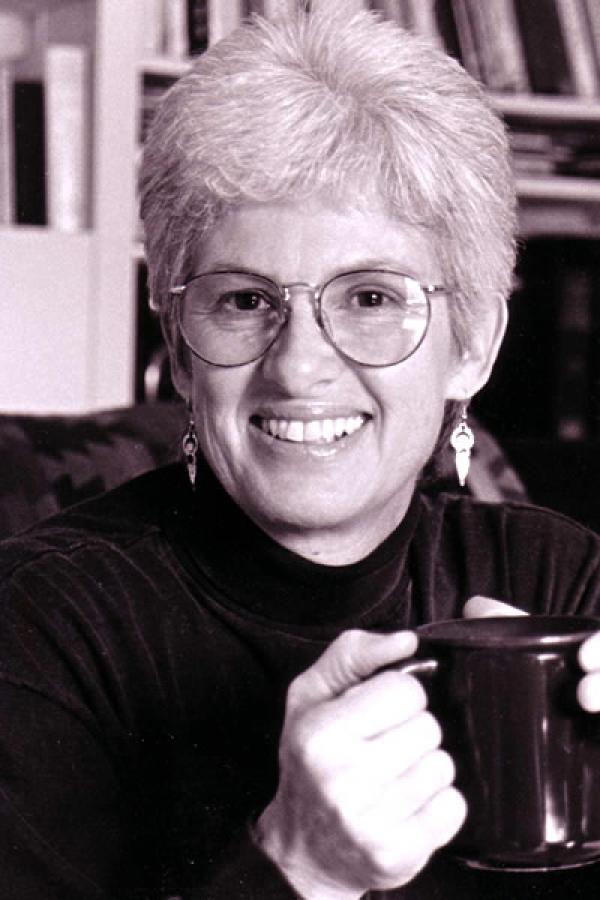Shelia Oritz-Taylor

Photo by Stuart Riordan
Bio
Sheila Ortiz-Taylor is a fifth generation Californian, transplanted to Florida in 1973. She taught fiction writing at Florida State University for more than thirty years. During that time she published six novels, a memoir, and a book of poetry. Her honors include a named professorship, a senior Fulbright Fellowship, two Florida Individual Artist Fellowships, and a Money for Women/Barbara Deming Memorial Grant. She attended artist residencies at Hedgebrook, Hambidge, Anam Cara, Casa Don Miguel, Dorland, and Fundación Valparaíso.
Author's Statement
I was watching a Fraiser rerun when the phone rang. "Out of Area," the caller ID warned. Did I sound suspicious and defensive to Chloey Accardi, who wanted only to tell me I was being given an NEA fellowship? My partner swears I literally danced around the kitchen.
What was this strange joy? Well, certainly anyone would be happy to win $25,000. But writers are particularly inclined to believe they are mailing off letters to a world that never writes them back, to paraphrase Emily Dickinson. Now here was the world, writing me back, or rather, calling from out of area.
My own particular version of out of area includes having been a woman in academe, being a Chicana, and being a lesbian. More recently my retirement and status as elder have probably contributed to this out of area feeling.
But this award pulls me back into the area, the one where work by all kinds of people is going on and being honored and appreciated and recognized. So thank you NEA, my fellow taxpayers, the devoted group of distinguished judges, and Chloey herself. I'm going to write you all a great big, wonderful novel.
From the novel Assisted Living
In the beginning you lived comfortably in your own Casita at the outermost circle of the community. You were what Alexander called material matter with mundane thoughts. You kept a car, went to the theater, tended your flowers; you were independent.
At the next stage you entered the Garden Apartment. Still independent, you preferred to escape yard work and take the occasional meal in the Refectory. You could manage your own medications, buy groceries, pay your bills, and drive.
Then, as your body weakened - diabetes, heart attack, arthritis, stroke, Alzheimer's - you edged closer toward the center, entering the first floor of the Tower, where small assisted living apartments were available. You continued doing whatever you could for yourself, but professionals stood by, Alexander said, like devoted mothers, preparing your food, helping you dress, washing your clothes, changing your sheets, counting out your pills, and driving you to appointments.
But unlike mothers, these professionals had little interest in bowel and bladder problems. Once you needed Depends, you entered a different level of the Inferno - or possibly the Paradiso - altogether. You were moved out of Assisted Living to take up residence in Skilled Nursing, second floor, Tower. Alexander always maintained this was not such a bad place to be. The view was good and there was nothing to distract you from the spiritual life that would prepare you eventually for the final stage, known in the Casa de los Sueños handbook as Permanent Care.
Thank goodness Alexander had been spared that, lying in a hospital bed in a room just big enough to hold it. Oh he pretended to love and embrace the whole process, what he called "the Grand and Ironical Migration toward the Good." But she noticed his disappointment when they had had to move from the Garden Apartment into Assisted Living after her stroke. He missed his tomato plants and his old upright piano. Talking about Plato took out some of the sting, she expected. Theorizing diverted him from looking at the thing head on, which was what Violet preferred.
Death, she said now under her breath. For she was no stranger to the ways of death, having nursed both her own parents and one of Alexander's, then buried them all. Well, not at the same time, and certainly not literally, but she might as well have.
Staring out now through the vast windows of the Recreation Room she could somehow see herself alone in the Community Rose Garden with her spade. In her vision she was digging and resting, digging and resting, standing inside, watching herself outside, a little trick taught to her by Death himself.
For usually Death was a "him" who appeared to Violet in various guises. Leaning on her spade she saw him at a distance standing just under the jacaranda tree dressed as a sharpshooter in a carnival gallery, wearing tight-fitting, black leather pants and motorcycle boots. He wore a white t-shirt with short sleeves rolled up high, revealing muscled arms wound about with tattooed serpents. What could his target be, she wondered, pulling herself back inside the bright room, willing herself to be not in two places but in one only, Violet March waiting for bingo to begin.

